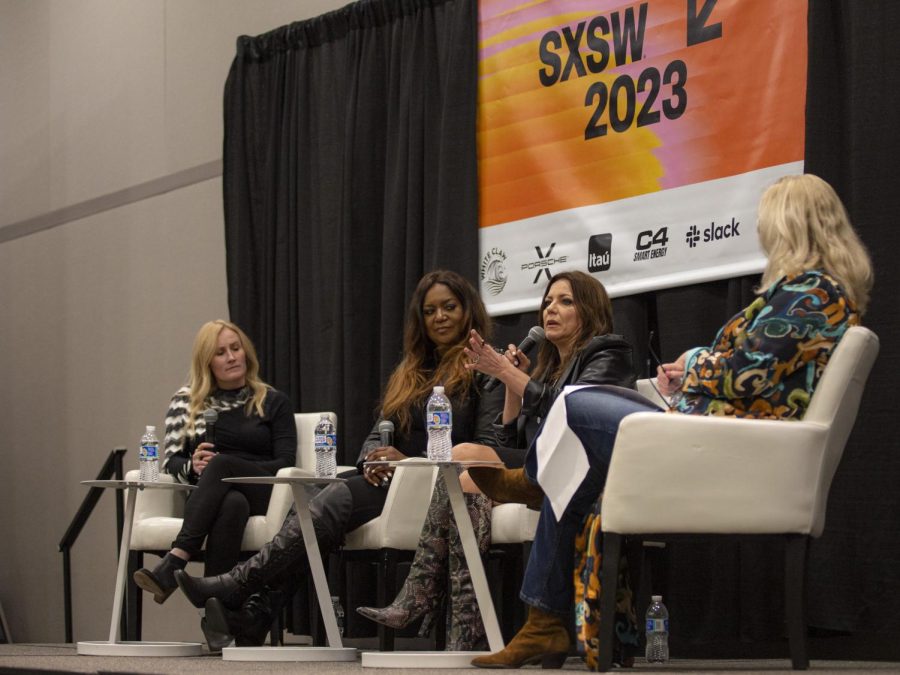Musicians get together at SXSW to discuss ushering diversity, inclusion in music industry
March 16, 2023
Grammy-nominated country artist Martina McBride wanted to make a Spotify playlist. She opened the app, clicked “new playlist” and named it “Country Music.” Spotify auto-populated suggestions based on the title.
McBride had to scroll through 14 pages before Spotify suggested her a female artist.
At her South by Southwest panel on Wednesday, McBride said Spotify algorithms had an implicit bias against female artists, offering them less exposure than the men in their industry. McBride called the streaming platform out on social media and on The Today Show. Spotify said it was unaware of the bias and pledged to address it.
“There were four major releases by female artists that week, and they were nowhere to be found in my rudimentary search for country music,” McBride said. “When somebody is just randomly trying to find country music to put on their playlist, they shouldn’t have to wade through 120 songs by men before they see one suggestion for a female artist.”
Leading the “Diversity & Equity in the Music Industry” panel, McBride took to the stage alongside Wendy Moten, a recording artist and former contestant on The Voice. The two musicians were also joined by Deborah Fairchild, VEVA Sound president, and Beverly Keel, the dean of Middle Tennessee State University’s College of Media and Entertainment, standing up for themselves and their peers as minorities in the music industry and working to usher change for a new generation of artists.
“When I was coming up at MTSU, I was the only female in the program,” Fairchild said. “I also didn’t have a lot of outlets to see other women doing it.”
Fairchild started as an archival engineer at VEVA Sound, a company built for music producers and songwriters. She said, as the only woman in the workplace, she faced misogynistic comments and unfair treatment at every turn, consistently dismissed and passed up for promotions.
Eighteen years later, Fairchild runs VEVA Sound as its president, playing a monumental role in growing and expanding the now global company.
“In the beginning, it was all men everywhere, but I was the one that had to go get coffee, clean the bathrooms, answer the phone, things that none of the other guys my age had to do,” Fairchild said. “Now, I don’t lead the company that way. I hire engineers, and we have seven guys and five girls, it’s really balanced.”
Moten also addressed the intersectionality of the issues discussed, speaking on ageism, particularly against Black women, in the industry.
“(Fostering diversity) is a challenge, and it takes a lot of people being in the forefront to fight for those changes,” Moten said. “Even just being a Black woman in the music business, you could be a Black girl all day long, but a woman? You have to fight to stay in the music game.”
As an educator, Keel said she constantly works to find new ways to bring music opportunities to female students and students of color, with initiatives such as National Music Equality, an organization working to create an anti-racist atmosphere in the music industry.
“It’s not just about succeeding in the music industry,” Keel said. “It’s also about surviving life in America as a person of color in the year 2023. But we are doing those things, and the first thing you have to do is raise awareness.”
With more work to be done, Moten said opportunities for minorities in the industry are slowly improving.
“We keep evolving as time goes on,” Moten said. “I definitely see progress and we will continue to be progressive. I’m hopeful that the future will continue to be bright.”





